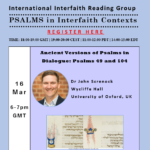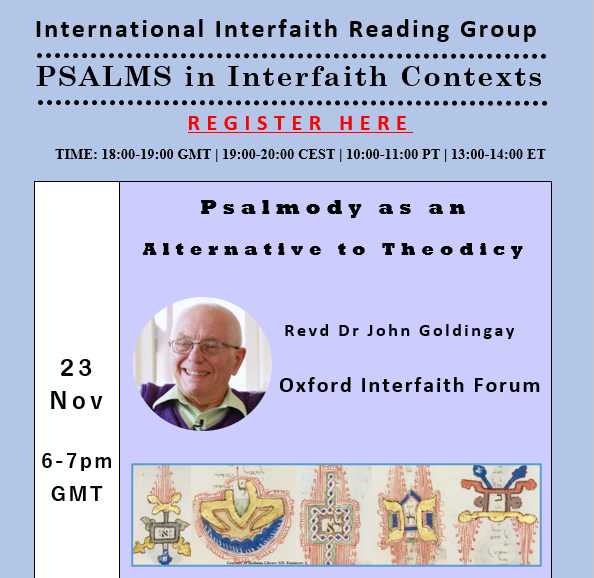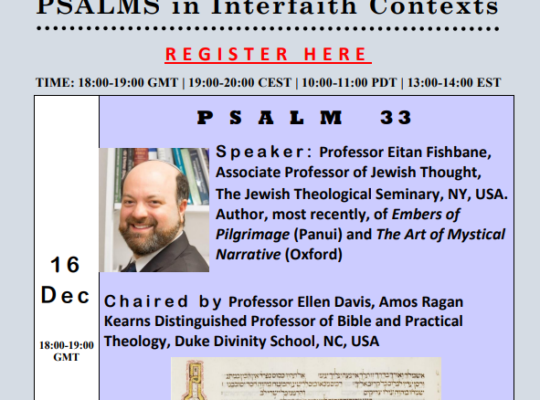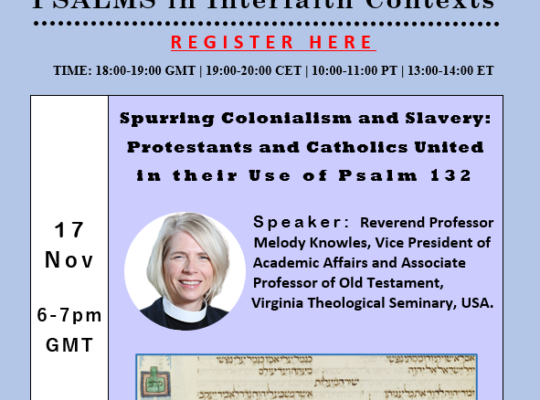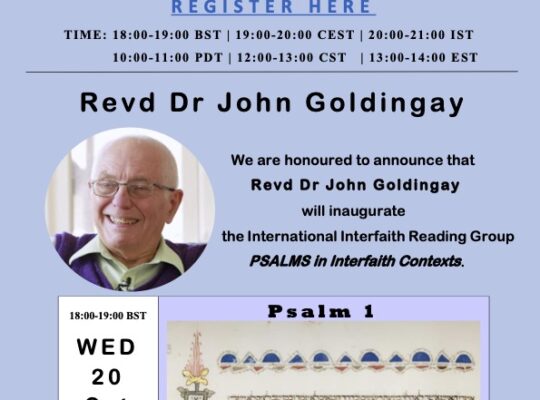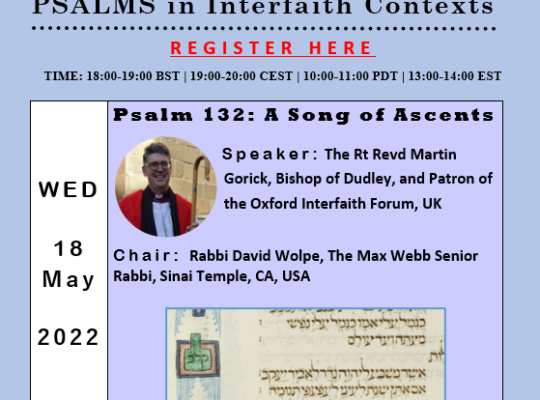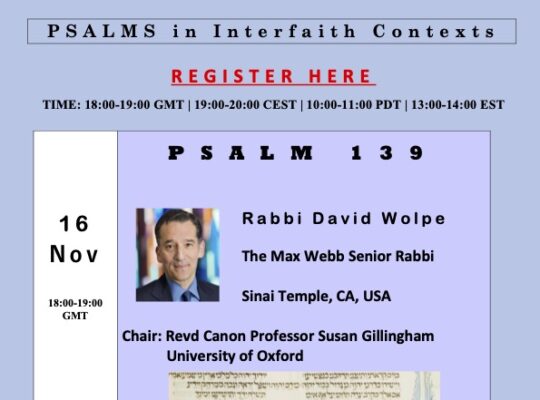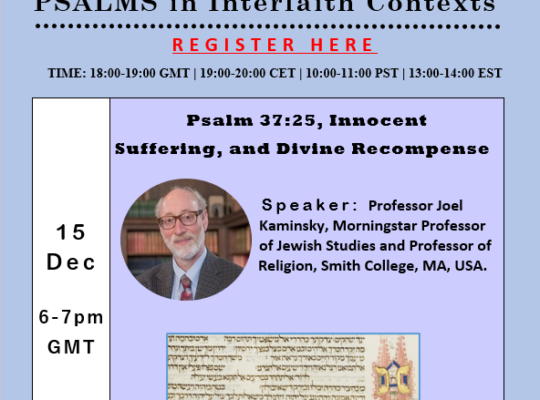23 November, 2023
We are deeply honoured to welcome Revd Dr John Goldingay to deliver a special anniversary lecture for the Psalms in Interfaith Contexts Reading Group.
Here are the details of this fascinating session.
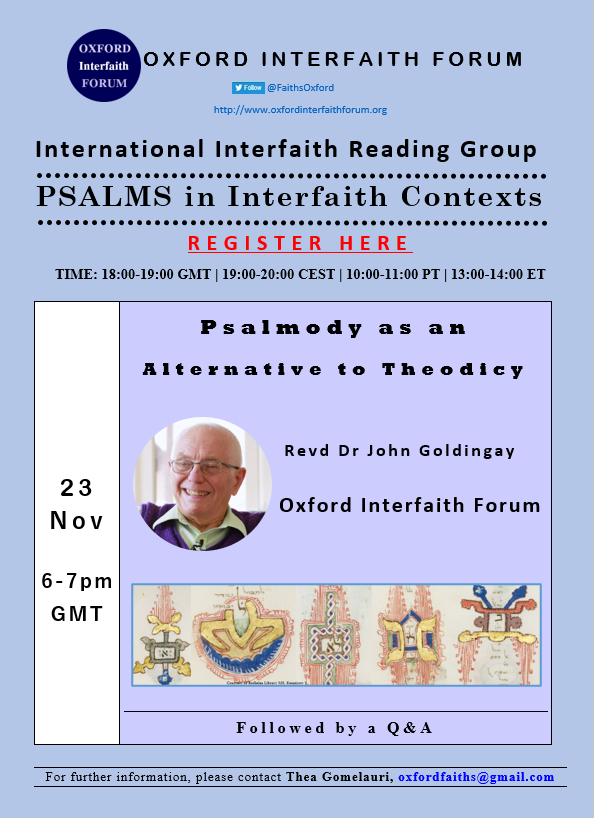
Topic: Psalmody as an Alternative to Theodicy
Abstract: Theodicy has become a significant topic in the study of the Hebrew Scriptures, and the Psalms are a natural work to approach through this lens. They are often concerned, that is, with the way Israel or individual Israelites find life not working out as one might expect, on the basis of the Lord’s power and commitment to them. But theodicy is a theological or philosophical topic of discussion concerning God’s nature and God’s involvement in the world, and the Psalms do not exactly engage in that kind of theological and philosophical reflection. They engage in theology, especially by engaging in doxology, and the dynamic of the theology comes out forcefully in this way. The presupposition of this paper is that the same applies to the Psalms’ approach to theodicy. Whereas the Psalms themselves directly discuss theodicy only rarely, they do address the Lord and they address people over the matters that have become the concerns of theodicy. But their own direct concern is to give expression to or resource a way of living with the experiences that issue in the theodicy question, rather than to think about the question itself. And for the most part, they do it by making it a topic for conversation between Israel and the Lord. So in this paper, I seek to engage with the way the Psalms address Yahweh in praise, protest, and thanksgiving, and also address people in confession, appeal, and testimony, to engage with them aware of the issues that modernity and postmodernity raise in discussion of theodicy, but in a fashion not too bound by the framework of that discussion.
Speaker: Revd Dr John Goldingay (DD, Archbishop of Canterbury at Lambeth) is the David Allan Hubbard Professor Emeritus of Old Testament in the School of Theology of Fuller Theological Seminary in California but lives in Oxford, England. He was previously principal and professor of Old Testament and Hebrew at St. John’s Theological College in Nottingham, England. His books include An Introduction to the Old Testament, A Reader’s Guide to the Bible, Reading Jesus’s Bible, and commentaries on Psalms, Isaiah, and Daniel. He has also authored Biblical Theology, the three-volume Old Testament Theology, and the seventeen-volume Old Testament for Everyone series, and has published a translation of the entire Old Testament called The First Testament: A New Translation.
Chair: Revd Dr David Firth, Tutor in Old Testament Studies, and Leader of Undergraduate Course, Trinity College, Bristol, UK.
Date: 23 November, 2023
Time: 18:00-19:00 GMT | 19:00-20:00 CEST | 10:00-11:00 PT | 13:00-14:00 ET
Venue: online
Related Sessions
- Psalmody as an Alternative to Theodicy
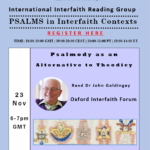
- Psalm 40 and Messiness of Prayer
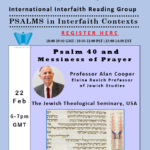
- Psalm 109: The Prayer No One Wants
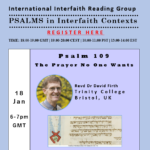
- A Book for All Seasons: Medieval Liturgical Psalter
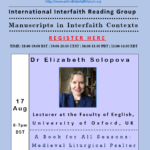
- Exile and Restoration in the Psalms
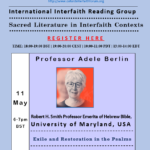
- Psalm 37:25, Innocent Suffering, and Divine Recompense
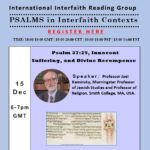
- Psalm 44 and the Book of Job: God on Trial
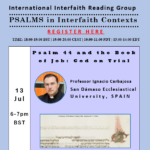
- Psalm 132: A Song of Ascents
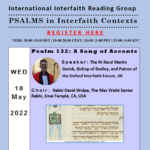
- Psalm 88: ‘Fists Flailing at the Gates of Heaven’
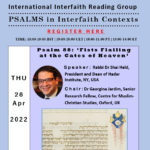
- Psalm 82: Demanding Justice
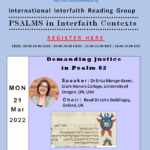
- Surprising Uplift of Psalm 23
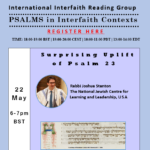
- ‘Deep cries unto deep’: Julian of Norwich and Psalm 42
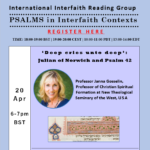
- Psalm 51: Contemporary Multifaith Interpretations
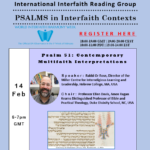
- Comparative Reading of Psalms and Abrahams’ Prayers in the Quran
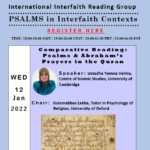
- Psalm 33: Mystical Reading
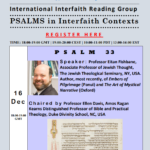
- Psalm 139
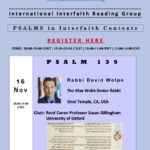
- Psalm 1: Inaugural Session by Revd Dr John Goldingay
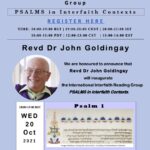
- Psalm 131: How I Weaned Myself from the Breast of God
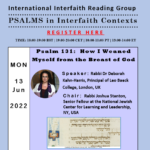
- When Music Meets Psalms: Psalm 130
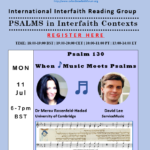
- Psalm 46: Singing in Hope and Defiance
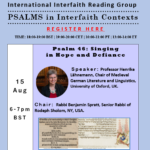
- Psalm 19: Muslim Reflections on Creation
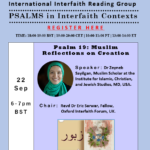
- Psalm 106: Fall of Jerusalem and Lamentations Ch.3
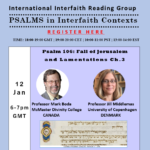
- Midrash Tehillim on Psalm 24
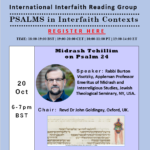
- Spurring Colonialism and Slavery: Protestants and Catholics United in their Use of Psalm 132
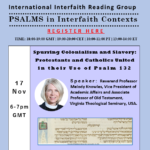
- Awake, My Soul! Psalms: 44; 57; 133; 143
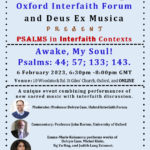
- The Art of Sacred Sound in the Muslim Context: Psalms and Islam
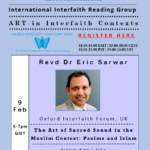
- Music, Poetry, and Psalm 131 in Christian Liturgy
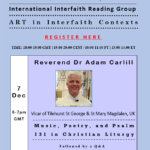
- Ancient Versions of Psalms in Dialogue: Psalms 49 and 104
